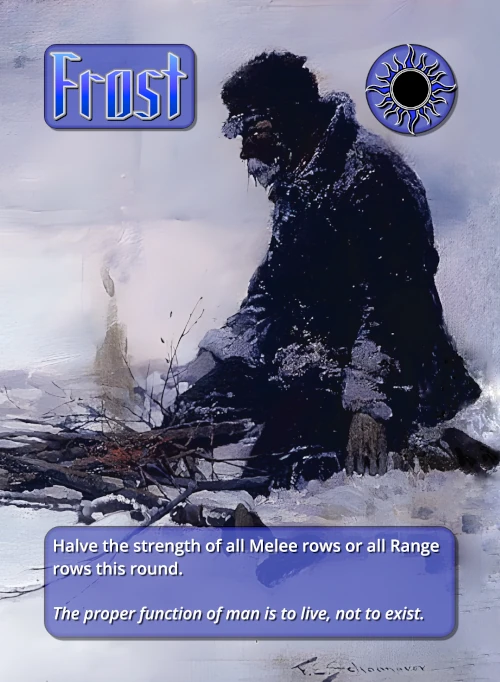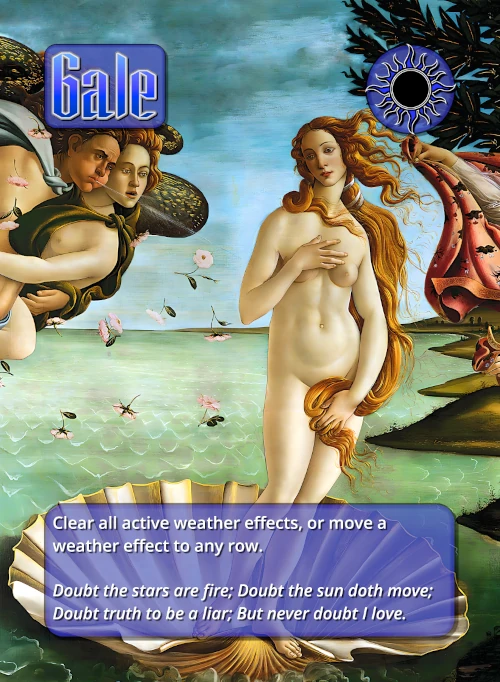Type: Weather Power
Effect Text: Halve the strength of all Melee rows or all Range rows this round.
Flavor Text: The proper function of man is to live, not to exist.
Flavor Source: Jack London, To Build a Fire
Artwork: To Build a Fire Magazine Illustration by F. E. Schoonover (1908)
Strategy:
Weather cards, like Frost, which halve the strength of a row should be used to punish your opponent for playing heavily in a single row, counter a King’s doubling effect, or make a row unattractive to your opponent. It’s best either to (1) play these cards late in the round to take your opponent by surprise, or (2) play these cards early in the round to set up a bluff (e.g. in a combo with Gale). Remember, you must declare the weather’s row when the card is played.
About the card:
"The proper function of man is to live, not to exist. I shall not waste my days in trying to prolong them. I shall use my time."
This was said by American author and poet Jack London. London was most famous for his stories about the Klondike and his story "To Build a Fire" is perhaps the best of his short stories. The story involves a man who sets out for a hike in the Canadian Yukon region, where temperatures are often some of the coldest in the world, and records his slow and predictable demise after a few small, but not life threatening, mistakes snowball to his death having failed to get warm and build a fire (see also Solstice). An excerpt from the story describes the man's hubris perfectly:

"The trouble with him was that he was not able to imagine. He was quick and ready in the things of life, but only in the things, and not in their meanings. Fifty degrees below zero meant 80 degrees of frost. Such facts told him that it was cold and uncomfortable, and that was all. It did not lead him to consider his weaknesses as a creature affected by temperature. Nor did he think about man’s general weakness, able to live only within narrow limits of heat and cold."






